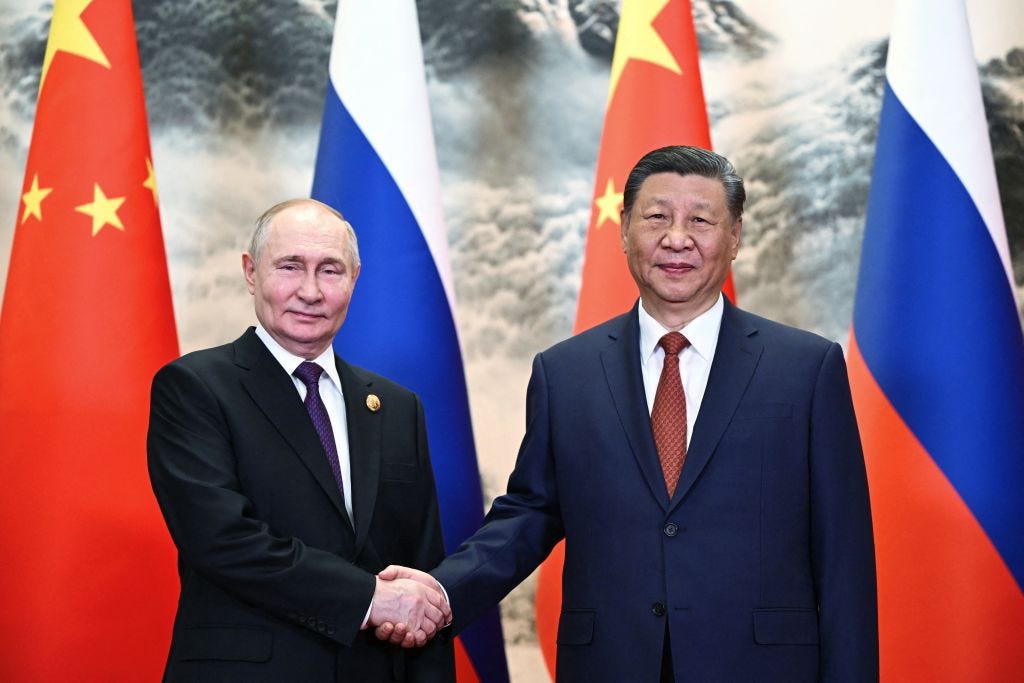This article first appeared as the Weekend Essay on the New Statesman website. We are sending it to subscribers with their kind permission.
Vladimir Putin was in good spirits this month. First, having been inaugurated for his fifth presidential six-year term on 7 May, he took the opportunity to reshuffle his government. Then, when he met with his new team he was able to report that Russia’s latest offensive in Ukraine had made progress. “Our troops are improving in all positions, in all directions, every day,” he said. The work of the military was “proceeding according to the plan”. Lastly he ended the week with a two-day visit to China, cementing his partnership with fellow autocrat Xi Jinping, and no doubt encouraging him to step up support for Russia’s war effort.
It was the new offensive from across the border into Kharkiv that attracted the most attention. According to Putin the aim is to “carve out” a buffer zone along the border with the Russian province of Belgorod to thwart Ukrainian attacks against Russian territory. This was disingenuous — every time Putin propels more people to their deaths, he explains that the Ukrainians made him do it.
In practice, even if they can be held, the new lines put the already battered city of Kharkiv more in range of Russian missiles and rockets. For now the Russians lack the combat power to make a serious push towards the city, let alone take it.
Keep reading with a 7-day free trial
Subscribe to Comment is Freed to keep reading this post and get 7 days of free access to the full post archives.




